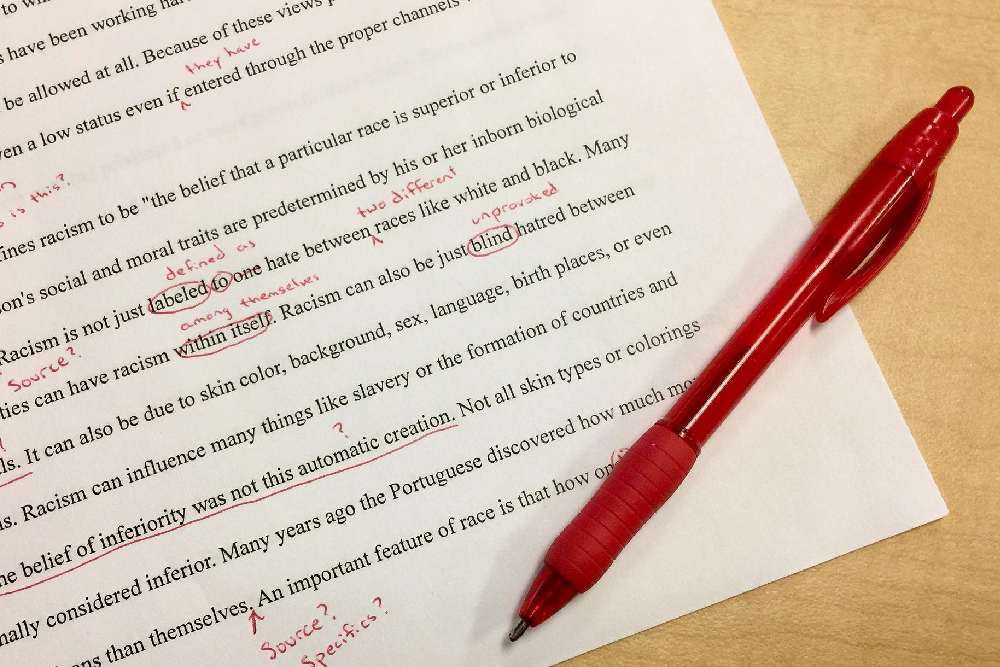Los phrasal verbs son una de las herramientas gramaticales que más emociones despiertan entre los estudiantes, ya que estas suelen ser confusas para los no nativos por su variedad de interpretaciones. Sin embargo, si se quiere aprender el idioma en su totalidad, son fundamentales para dominar el inglés coloquial y poder expresarse de la mejor manera.
¿Qué son los phrasal verbs?
Los phrasal verbs son estructuras verbales compuestas por dos partículas: verbo + adjetivo, adverbio o preposición que sirven para definir acciones o estados específicos. Gracias a esto, de un mismo verbo, por ejemplo look, se pueden crear verbos compuestos muy distintos entre sí: look for (buscar), look forward(esperar con ilusión). Además, gracias a que su uso entre hablantes nativos de inglés es muy extendido, se trata de un tema que es indispensable dominar para los estudiantes del idioma.
Tipos de Phrasal Verbs
Hay tres tipos:
- Phrasal verbs intransitivos: La acción no recae en un complemento directo porque afecta solamente al sujeto de la oración. Por ejemplo.
- My smartphone broke down this week (Mi teléfono se descompuso esta semana).
- Phrasal verbs transitivos inseparables: Como verbo transitivo, la acción recae en el complemento directo. Se les llama inseparables porque la suma verbo + adjetivo, adverbio o preposición siempre debe aparecer sin alteraciones de ningún tipo. Por ejemplo:
- I will look after my grandmother tonight (Voy a cuidar a mi abuela esta noche).
- Phrasal verbs transitivos separables: De nueva cuenta, al ser transitivos, la acción recae en el objeto directo. Sin embargo, se les llama separables porque entre el verbo y el adjetivo, adverbio o preposición puede colocarse dicho objeto directo. Por ejemplo:
- You never let me down (Tú nunca me decepcionarás).
Los 20 phrasal verbs B2 más usados en inglés
Para ayudarte en tu aprendizaje, hoy te hemos traído 20 phrasal verbs B2 que deberías saber de memoria.
Los phrasal verbs consisten en verbos simples compuestos con al menos un adverbio o una preposición. En ocasiones esta composición supone un cambio radical en la oración final, por lo que se vuelven complicados de comprender para alguien que aún no domina el idioma. Pero huir de ellos no es una solución y con el tiempo se puede adquirir la práctica necesaria. Para que te vayas familiarizando con ellos, te mostraremos los 20 phrasal verbs B2 más usados en inglés:
1. Break down
Empezamos con el mejor ejemplo para que veas las múltiples interpretaciones que puede llegar a tener un verbo compuesto, break down:
- Dejar de funcionar: my car has broken down. Mi coche dejó de funcionar.
- Empezar a llorar: he broke down and cried. Él se derrumbó y lloró.
- Derribar: break the door down. Derribar la puerta
- Fracasar: my marriage has broken down. Mi matrimonio ha fracasado
2. Back up
Apoyar, respaldo, hacer copia de seguridad.
- Apoyar: the team backed him up. El equipo lo apoyó
- Hacer copia de seguridad: I made a back up on my laptop. Hice una copia de seguridad en mi portátil
3. Hurry up
Darse prisa.
- Darse prisa: hurry up and get in. Apresúrate y ven adentro
4. Make up
Decidir, hacer, compensar.
Decidir: can’t make up his mind. No se puede decidir
Hacer: let me make it up to you. Déjame hacer esto para ti.
Compensar: It is difficult to make up for this time. Es difícil compensar el tiempo perdido.
5. Call off
Suspender, cancelar.
- Suspender, cancelar: we have to call off the meeting. Tenemos que cancelar la reunión.
6. Calm down
Calmarse, tranquilizarse.
- Calmarse, tranquilizarse: Try and calm down. Intenta calmarte.
7. Find out
Encontrar, descubrir, enterarse.
- Encontrar, descubrir: give me a ring if you find out something. Llamadme si descubrís algo.
- Enterarse: we’ll soon find out. Pronto nos vamos a enterar.
8. Clear up
Despejarse, ordenar.
- Despejarse: It’s going to clear up. Va a despejarse.
- Ordenar: clear up your desk. Ordena tu escritorio
9. Blow up
Explotar, inflar.
- Explotar: It’s going to blow up. Va a explotar
- Inflar: blow up those balloons. Infla esos globos
10. Pick up
Recoger.
Recoger: where can I pick up my ticket?. ¿Dónde puedo recoger mi boleto?
11. Deal with
Tratar.
- Tratar: he can be difficult to deal with at times. A veces, él puede ser difícil de tratar.
12. Drop off
Dejar, tirar.
- Dejar: I’ll drop you off at the station. Te dejaré en la estación.
- Tirar: I cannot drop off that here. No puede tirar eso aquí.
13. Face up to
Afrontar, hacer frente a.
- Afrontar, hacer frente a: you have to face up to your responsibilities. Tienes que afrontar tus responsabilidades.
14. Fall out
Caer.
- Caer: money doesn’t fall out of the sky. El dinero no cae del cielo.
15. Get away
Escaparse, alejarse.
- Escaparse, alejarse: don’t let him get away. No dejes que se escape
16. Get through
Superar, terminar algo.
- Superar, terminar: when I get through with my work, I’ll call you. cuando termine el trabajo te llamo.
17. Sell out
Agotarse, liquidarse, venderse todo.
- Agotarse, liquidarse, venderse todo: the online shop sold out all the T-shirts. la tienda online vendió todas las camisetas
18. Point out
Señalar.
- Señalar: she pointed out our mistakes. Ella señaló nuestros errores.
19. Go off
Irse.
Irse: I have to go off because I have an appointment with a friend. Tengo que irme porque tengo una cita con un amigo.
20. Look into
Mirar, investigar, indagar.
- Mirar, investigar: the police will look into the case. La policía investigará el caso.
Estos son los 20 phrasal verbs B2 más comunes en el vocabulario cotidiano del inglés ¿Conocías alguno?
Phrasal verbs con Put
Put away
Significado 1: Guardar o poner algo en su sitio. Es un phrasal verb separable.
Significado 2: Encarcelar a alguien durante un tiempo determinado. Es un phrasal verb separable.
Ejemplos:
- Put your things away.
- The girl didn´t want to put her things away.
- I didn´t see you put them away.
- An alien put them away.
- They are going to put him away for 30 years for the crime he commited.
Put in
Significado: Meter o poner algo dentro (o en un sitio/lugar). Es un phrasal verb separable.
Ejemplos:
- Put it in the pocket.
- Put the mobile phone in my bag.
- How much time did you put it in?
- Let´s not put too much time into it.
- I´ve put a lot of time in this game.
Put off
Significado: Posponer o aplazar algo. Es un phrasal verb separable.
Ejemplos:
- Put it off until next week.
- They put off the meeting.
- Why are you always putting it off?
- We should not put it off anymore.
- Don´t put off for tomorrow what you can do today.
Put on
Significado 1: Ponerse ropa. Es un phrasal verb separable.
Significado 2: Poner algo sobre una superficie o un lugar. Es un phrasal verb separable.
Significado 3: Engordar
Ejemplos:
- Put the jacket on.
- Put the book on the table.
- You can put your clothes on.
- I always put on weight during Christmas.
- Put my father on the phone.
Put out
Significado 1: Apagar algo que se está quemando o que está ardiendo.
Significado 2: Sacar algo fuera.
Ejemplos:
- Put out the cigarette in the ashtray, please.
- Put the clothes out to dry.
- It took them two hours to put it out.
- The firefighters put out the fire in five hours.
- We put them out of the competition.
Phrasal verbs con Look
Look after
Cuidar o encargarse de alguien.
Ejemplos:
- My husband looks after the children when I’m at work. (Mi marido cuida de los niños mientras yo estoy en el trabajo.)
Look at
Mirar a algo o alguien (sencillo, ¿verdad?).
Ejemplos:
- Look at the cats – they are doing that thing I told you about. (Mira a los gatos, están haciendo esa cosa que te conté.)
Look for
Buscar algo o a alguien. Es uno de los phrasal verbs más útiles y conocidos.
Ejemplos:
- I’m looking for my phone – have you seen it? (Estoy buscando mi teléfono, ¿lo has visto?)
Look forward to
Esperar algo con ansias. Es muy típica en las despedidas de cartas y emails.
Ejemplos:
- I’m looking forward to working with you again. (Espero trabajar con usted de nuevo.)
Look into
Estudiar, investigar. El verbo investigate también existe en inglés, pero su uso es mucho más formal.
Ejemplos:
- I’ll look into it and tell you the results. (Lo investigaré y te contaré los resultados.)
Look out
Estar atento a alguna cosa que podría pasar. A veces se le añade for o se cambia el verbo look por watch.
Ejemplos:
- Look out with that dog, it looks like it will bite. (Cuidado con ese perro, tiene pinta de morder.)
Look over
Revisar, repasar o examinar.
Ejemplos:
- You have to look them over first. (Tienes que revisarlos primero.)
Look through
Revisar, hojear
Ejemplos:
- When I’m in a bookshop, I look through as many book as I can. (Cuando estoy en una librería, hojeo todos los libros que puedo.)
Look up
Consultar o buscar algo en un libro de referencia (por ejemplo, un diccionario).
Ejemplos:
- You don’t know what «flabbergasted» means? Then look it up! (¿No sabes lo que significa «flabbergasted»? ¡Pues búscalo!)
Phrasal verbs con Get
Get about
- Pasear, moverse o desplazarse.
- Hablar de un rumor, como cuando decimos que nos lo ha dicho un pajarito.
Ejemplos:
- I certainly get around in my job. This month, I’ve travelled to London, Paris and Milan.
- It got about that you are learning English with The Academy, is that true?
Get across
- Cruzar
- Hacer entender.
Ejemplos:
- She got across the right place, that is the zebra-crossing.
- I simply can’t get my message across to Laura that The Academy is the best way to learn English. She never listens to me.
Get along
- Llevarse bien.
Ejemplo:
- I don’t really understand Laura, she doesn’t use The Academy, but we get along
Get away
- desconectar
- + with = salirse con la suya
Ejemplos:
- I need to get away this weekend
- “Laura always gets away with her lies”
Get back
- Volver, regresar
- + to = contestar a alguien a una llamada o un correo»
- + at = vengarse de alguien.
Ejemplos:
- I will get back to The Academy to learn another language.
- If I don’t get back to you later, call me tomorrow
- I will get back at Laura.
Get out
- salir
- + of = conseguir algo.
Ejemplos:
- Get out of here!
- Peter thinks he’ll get money out of me by lying all the time.
Get over
- recuperarse, sobreponerse, superar.
Ejemplos:
- Get over it already!
- His uncle has died. It’s not going to be easy to get over it.
Get by
- arreglárselas
- salvarse, pasar.
Ejemplos:
- We’ll have to get by with what we have.
- I speak English and Spanish, and can get by in Italian as well.
Get through
- + with = acabar con algo lo antes posible.
- + to = comunicarse con alguien o lograr que alguien entienda algo.
Ejemplos:
- I need to get through it as soon as possible.
- I tried unsuccessfully to get through to Peter
Get off
- Bajar
- dejar de trabajar.
Ejemplo:
- I will get off the bus in the next stop.
- I’ll give you a call when I get off, at around 8 pm
Phrasal verbs con Take
Take after
- parecerse a.
Ejemplos:
- Many people say that Luisa takes after her grandfather.
Take back
- devolver
- retirar algo que se ha dicho antes.
Ejemplos:
- She will take back the money tomorrow.
- I wish I could take back what I said to her.
Take in
- absorber, comprender‘
- engañar, tomar el pelo
Ejemplos:
- I had to read the letter twice before I could take it all in.
- Don’t be taken in by his nonsense.
Take off
- despegar
- quitarse, despojarse de
- imitar
- empezar a mejorar, ir a mejor
Ejemplos:
- The plane will take off on time.
- Please, take off your coat and sit down.
- This comedian is very good at taking off politicians.
- After several years open, The Academy took off in 2012.
Take on
- asumir
- aceptar
- contratar
Ejemplos:
- I don’t think he was ready to take on the directorship.
- We will only take on work we can fully guarantee.
- We’ll have to take on more staff for the Christmas campaign.
Take to
- encariñarse
Ejemplos:
- The little girl took to her new neighbour. They are now inseparable.
Take again
- cogerle manía a alguien:
Ejemplos:
- I think Sarah took against me when I got the promotion she had been after.
Take up
- empezar una actividad nueva
Ejemplo:I’m not very good at tennis– I only took it up recently.
Consejos para aprenderse los Phrasal verbs
Se calcula que existen más de 10 mil phrasal verbs en inglés, por lo que definitivamente memorizarlos no es la mejor opción, pero hay algunas técnicas que te ayudarán a identificarlos, comprenderlos y usarlos mejor:
- Ejercicios de asociación: Al existir tantos, muchos tienen el mismo significado, por lo que un truco efectivo es identificar cuáles son sinónimos. Por ejemplo: argue down y bargain down tienen el mismo significado: regatear.
- Crea historias, refranes o chistes con ellos: Otra opción es que tú mismo escribas historias pequeñas, frases, refranes o chistes que te ayuden a recordar su uso y significado. La ventaja de esto es que puedes relacionar lo que escribas con tus gustos y con tus propias palabras.
- Haz tarjetas de aprendizaje: Puedes crear tarjetas de los verbos frasales que necesitas usar más, por una cara el phrasal verb en inglés y por la otra el significado con e incluso puedes hacer dibujos que te ayuden a comprender visualmente su significado.
- Descarga aplicaciones: Aprovecha las posibilidades que te da la tecnología y descarga aplicaciones especializadas en los verbos frasales. Hay muchas.
Descárgate una lista de phrasal verbs aquí.
Si te interesa aprender más sobre las reglas gramaticales y curiosidades del idioma, en The Academy ofrecemos clases de inglés en Granada en donde aprenderás de la manera más entretenida y práctica. Cumple tu meta de aprender inglés, contacta con nosotros y consulta sobre los cursos que podemos ofrecerte. Siempre tendrás la alternativa de elegir el más adecuado a tus necesidades.
• Director del centro
• Administración del centro
• Exámenes


